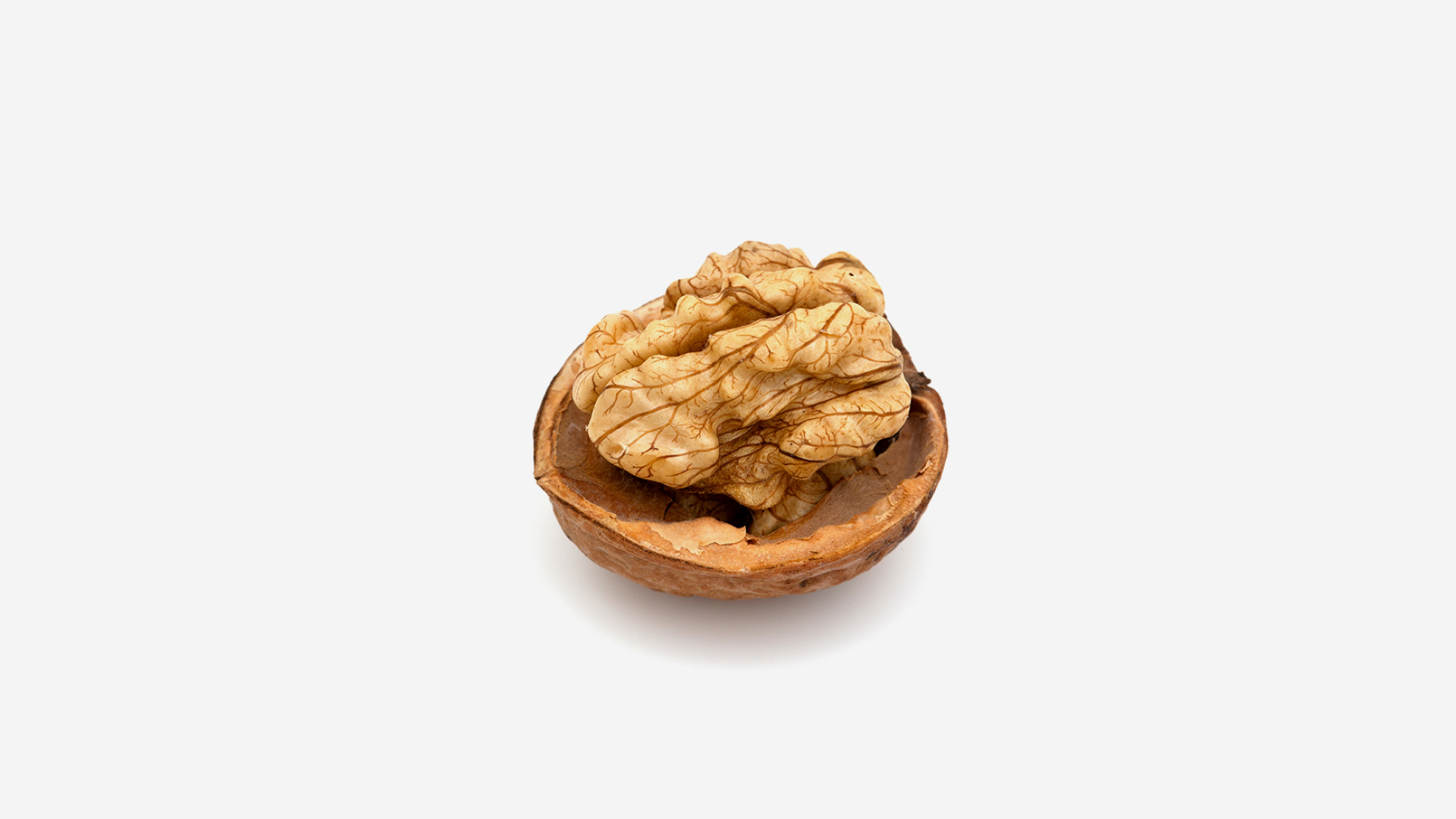People take supplements to improve or optimize their health. So what happens when you look at the label, and the ingredient list is filled with unrecognizable additives?

The phrase, “feed your head,” might be familiar to you if you’re old enough to remember Jefferson Airplane, a 1960s rock band and their iconic, drug-inspired song, “White Rabbit.” But for health-conscious consumers, “feed your head” means something very different. Do you think about feeding your brain cells? You might think about vitamins, minerals, and other nutrients that support the cells of your muscles, bones, joints, or heart, but what about the cells that make up your brain? Do you know what nutrients they need?
What causes disruption to brain integrity?
Injury to the structural integrity of the brain can come from many sources. One of the most obvious sources is impact to the head from playing sports. Although sports injuries – occurring in sports like football, wrestling, boxing, ice hockey, rugby, soccer, and even baseball if you get hit with the ball – are currently receiving the most attention, they are not the most common causes.
According to Mayo Clinic, falls (bathtubs, stairs, bicycles, etc.) are the most common causes of injury to the head – particularly in young children and the elderly.1 Other common causes include car accidents, domestic violence, gunshot wounds, and flying or falling objects (such as might occur during a windstorm).
The brain floats inside the skull surrounded by a protective cushion of cerebrospinal fluid. But when a sudden impact occurs, the brain can slam against the skull, which can twist, stretch, and even break the brain’s delicate fibers. Even minor impacts can result in micro-damage in the brain. These impacts can disrupt the delicate electrical and chemical balance in the brain – even on a subclinical level.
Brain injuries can also be caused by non-traumatic events, like exposure to toxins, infections, and anything that blocks oxygen from getting to the brain or parts of the brain (near drowning, stroke, or tumors, for example).
Nutrition for the brain
Although no dietary change or nutritional supplement can prevent you from getting hit by a falling tree limb, knowledge of your brain and its nutritional needs could help support you, should you be exposed to a sudden impact – or if you are involved in sports that expose you to frequent impacts. Just as you can support muscle mass with amino acids or joint integrity with glucosamine sulfate, there are specific things you can do to provide nutritional support to your brain.
1. Omega-3 fatty acids
Brain cell membranes contain a high amount of the omega-3 fatty acid, DHA. In fact, three percent of the weight of the cerebral cortex (the outer covering of the main part of the brain – the cerebrum) is comprised of DHA. DHA plays a role in nerve cell formation, as well as an important role in the brain functions associated with memory and learning.
Although DHA is essential for a healthy brain, a study of college football players found that overall, they had a lower-than-ideal omega-3 index – a measure of the percent of omega-3 fatty acids in red blood cell membranes.2 A low omega-3 index is indicative of insufficient levels of DHA and EPA in this population.
If you’re a football player, elderly person at risk for a fall, or just want your brain to have a fighting chance if you do get a bonk on the head, then perhaps you should consider eating fish two or three times a week. Salmon has the highest amount of omega-3s per serving – approximately 1.25 grams of DHA per 3-ounce serving (and who only eats 3 ounces?).
Other fatty cold-water fish that will give you a hefty dose of DHA include herring (0.94 g), sardines (0.74 g), mackerel (0.59 g), and trout (0.44 g) – all per 3-ounce serving.3 If you don’t consume fish frequently – or prefer to get your omega-3 fatty acids from a specifically measured source that is tested for contaminants including mercury, then you can opt for a fish oil supplement.
2. Phospholipids
The brain is a rich source of phospholipids – phosphatidylcholine, phosphatidylserine, and phosphatidylethanolamine, in particular. Nerve cell membranes (in fact, all cell membranes) have what is called a phospholipid bi-layer surrounding each cell. This phospholipid bi-layer (bi means two – double layer) is semi-permeable, meaning it is designed to let important substances in, like water, oxygen, glucose, and DNA – while keeping unwanted molecules out.
Phosphatidylserine is found in relatively high amounts in brain cell membranes compared to the cell membranes in other parts of the body. It can cross the blood-brain barrier when taken orally and supports healthy brain function (memory, focus, cognition) by being part of the healthy brain structure.4 Phosphatidylcholine is a primary phospholipid in brain cell membranes and, along with phosphatidylethanolamine, is converted to phosphatidylserine. Phosphatidylcholine also contributes choline to make the important brain neurotransmitter, acetylcholine.
3. Ketones: Beta-hydroxybutyrate (BHB)
You probably know that your brain needs glucose to function. But did you know that ketones provide energy to the brain more efficiently than glucose? Ketones can provide as much as 70 percent of the brain’s energy needs, and, in particular, ketones can provide an alternate fuel source for both the injured and the uninjured brain.5 Ketones exert their neuroprotective benefit, in part, by increasing the formation of additional mitochondria, the energy-producing powerhouses in cells, including brain cells.
The availability of ketones to the brain can be achieved two ways. One way is the ketogenic diet, which increases ketones in the bloodstream, including the most prevalent ketone – BHB. A ketogenic diet has been shown to improve brain cell energy production.6 A second way makes ketones more available to the brain without a ketogenic diet. The ketone BHB, which is actively transported across the blood-brain barrier,5 is available in nutritional supplements. Once inside the brain, BHB supports cerebral blood flow and resistance to oxidative stress.7,8
4. Branched-chain amino acids (BCAAs)
A particular group of amino acids, the branched-chain amino acids leucine, isoleucine, and valine, can provide particular protection to the brain. Their importance it exemplified by the fact that they have been show to decline after an impact to the head.9 But when taken orally, they readily cross the blood-brain barrier, where they help make three primary neurotransmitters – dopamine, serotonin, and norepinephrine.10 One study found low BCAA serum levels increased within an hour of supplementation.11
- https://www.mayoclinic.org/diseases-conditions/traumatic-brain-injury/symptoms-causes/syc-20378557 [Accessed 4.22.21]
- Anzalone A, Carbuhn A, Jones L, et al. The omega-3 index in National Collegiate Athletic Association Division I Collegiate Football athletes. J Athl Train 2019;54(1):7-11. doi: 10.4085/1062-6050-387-18.
- https://ods.od.nih.gov/factsheets/Omega3FattyAcids-HealthProfessional/ [accessed April 23, 2021]
- Glade M, Smith K. Phosphatidylserine and the human brain. Nutrition 2015;31(6):781-786. doi: 10.1016/j.nut.2014.10.014.
- White H, Venkatesh B. Clinical review: ketones and brain injury. Crit Care 2011;15(2):219. doi: 10.1186/cc10020.
- Prins M, Matsumoto J. The collective therapeutic potential of cerebral ketone metabolism in traumatic brain injury. J Lipid Res 2014;55(12):2450-2457. doi: 10.1194/jlr.R046706.
- Shimazu T, Hirschey M, Newman J, et al. Suppression of oxidative stress by β-hydroxybutyrate, an endogenous histone deacetylase inhibitor. Science 2013;339(6116):211-214. doi: 10.1126/science.1227166.
- Newman J, Verdin E. β-Hydroxybutyrate: A signaling metabolite. Annu Rev Nutr 2017;37:51-76. doi: 10.1146/annurev-nutr-071816-064916.
- Jeter C, Hergenroeder G, Ward N, et al. Human mild traumatic brain injury decreases circulating branched-chain amino acids and their metabolite levels. J Neurotrauma 2013;30(8):671-679. doi: 10.1089/neu.2012.2491.
- Sharma B, Lawrence D, Hutchison M. Branched chain amino acids (BCAAs) and traumatic brain injury: A systematic review. J Head Trauma Rehabil 2018;33(1):33-45. doi: 10.1097/HTR.0000000000000280.
- Cole J, Mitala C, Kundu S, et al. Dietary branched chain amino acids ameliorate injury-induced cognitive impairment. Proc Natl Acad Sci U S A 2010;107(1):366-371. doi: 10.1073/pnas.0910280107.
Share:
Related Posts

Benefits of Creatine in Perimenopause and Menopause
Written by Maura MacDonald, MS, RD, CSSD | 2025 As we age, the notion is that we will inevitably become weaker. Not as mobile as

Goodbye Pie Chart, Hello Phase 1 Sliders
Written by Allison Smith, ND | 2025 As we usher in a new era of DUTCH testing which leaves behind the concept of the three-way

Introducing the DUTCH Dozen
Written by Kelly Ruef, ND | 2025 Hormone testing can be complex, which is why Precision Analytical developed the DUTCH Dozen, an interpretive framework that

DUTCH Report Enhancements
Written by Hilary Miller, ND | 2025 Precision Analytical have released the newest version of the DUTCH Test. This is the report’s most significant update

Gallbladder Health 101: What It Does and How to Keep It Working Well
Written by Ashley Palmer & Pooja Mahtani | 2025 The gallbladder may not get much attention compared to the gut, but it plays a central

